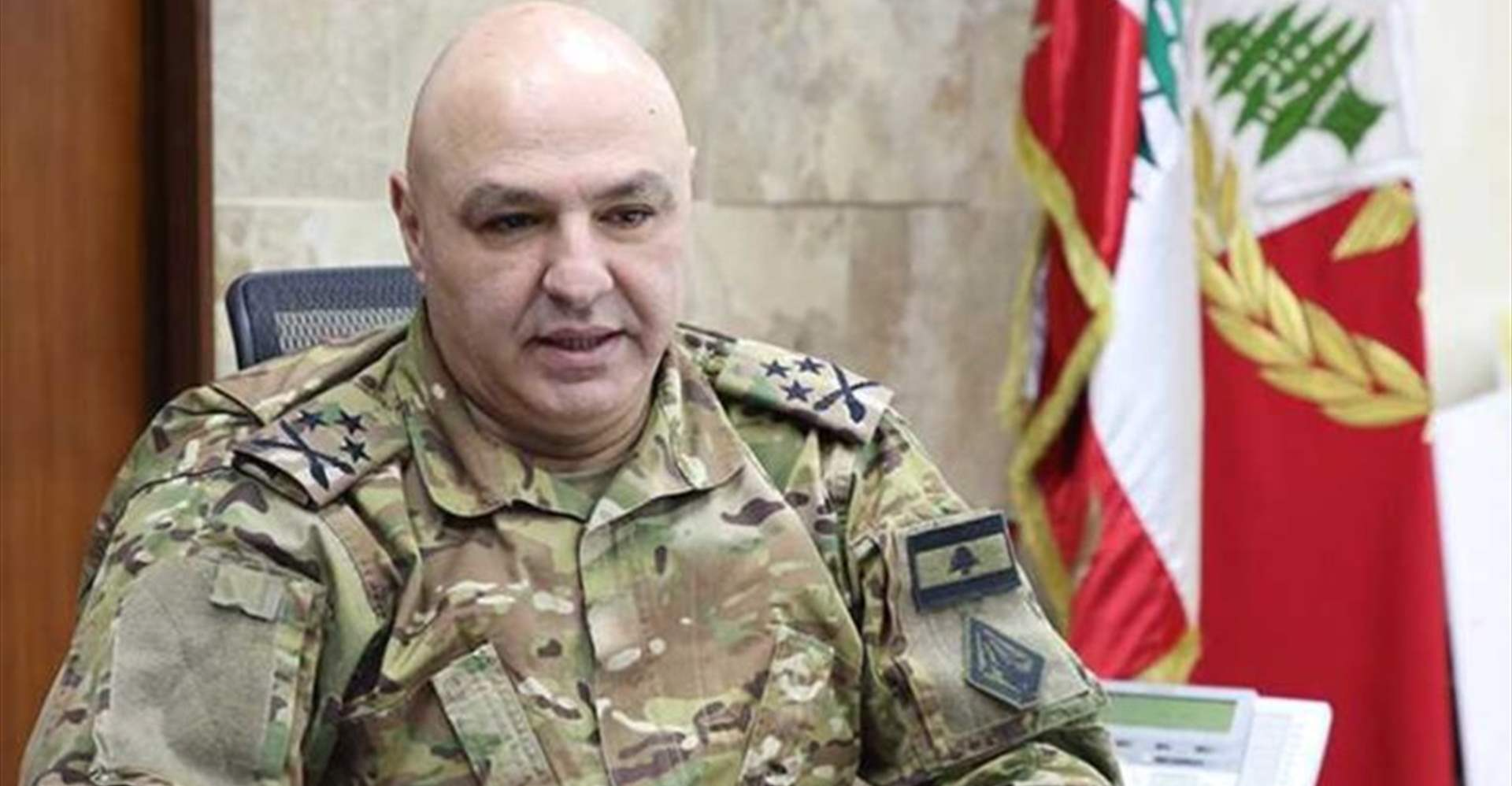Shafaq News / With a parliamentary vote, and with clearly foreign influence,the Lebanese parliament elected General Joseph Aoun as the 14th President ofthe Lebanese Republic, carrying him from military command to the presidentialpalace in Baabda.
General Joseph Aoun, who has led the Lebanese army since 2017, was electedin the second round of voting by the parliament, securing 99 votes out of 128.
This is not the first time a military leader has assumed the presidency inLebanon, nor is it unprecedented for a Maronite Christian to hold the country'shighest office. As such, the election session, attended by a large number offoreign and Arab ambassadors and diplomats, underscores the significance thatthese countries place on ending the two-year presidential vacuum.
It seems the new Lebanese president will consider the concerns and interestsof the countries that have worked for months to settle a solution to Lebanon'spersistent political crisis. This crisis, which left the presidency vacantafter former President Michel Aoun's term ended, has significantly impactedLebanon's governance.
For the Lebanese, it is not unusual for a military commander to ascend tothe presidency. Before Joseph Aoun, four army commanders have served aspresident: Fouad Chehab, Emile Lahoud, Michel Sleiman, and Michel Aoun. The newpresident, who is fluent in both English and French, joined the military in theearly 1980s, advancing through the ranks over the years. Today, he faces anextraordinary test, a sentiment shared by many both within Lebanon and abroad.
His first public appearance as president, delivering his inaugural speechwhile dressed in civilian attire rather than his military uniform, representsthis initial challenge. The transition from military service to civilianleadership reflects a significant shift in responsibility to the people and thenation.
Born in the town of Sin el-Fil in the Metn district, General Joseph Aounhails from the southern village of Al-Aishiya. He holds degrees in politicalscience and military sciences, in addition to numerous military honors,including the War Medal three times, the Wounded Medal twice, the NationalUnity Medal, the South Dawn Medal, the Lebanese Merit Medal in various grades,and the National Cedar Order of the Knight’s rank, as well as theAnti-Terrorism Medal.
In his first presidential address, General Aoun described his presidency asa "new chapter in Lebanon’s history," outlining the policies he plansto pursue. His speech conveyed messages both to the domestic audience and theinternational community, aiming to reassure all parties and set the directionfor the priorities of the presidency.
General Aoun acknowledged that the authority to implement many of thesepolicies lies primarily with the government, reflecting the political balanceswithin Lebanon's parliament.
One of the key messages from Aoun was a firm affirmation of the state'sright to monopolize the use of force. He emphasized the army’s responsibilityin securing Lebanon’s borders, particularly the southern and eastern borders,and the importance of completing the border demarcation process, referringspecifically to the borders with Syria and Israel.
He also called for discussions on a comprehensive defense policy that wouldenable the state to remove Israeli occupation and counter Israeli aggression,while reinforcing Lebanon’s relations with Arab countries.
Additionally, he reiterated Lebanon's commitment to the right of Palestinianrefugees to return and stated that "we have a historic opportunity tobuild serious dialogue with the Syrian state to address pending issues betweenour two countries, especially in terms of respecting sovereignty andstability."
In his domestic messages, which appeared to signal a willingness to engagewith Hezbollah and the Shiite community, Aoun pledged to "rebuild what wasdestroyed by the Israeli enemy in the south, the southern suburbs, the Bekaa,and across Lebanon."
He also emphasized that Lebanon’s martyrs are "the spirit of ourdetermination," and that the country’s prisoners are "a trust uponus." He encapsulated this sentiment with a poignant statement: "Ifone of us is broken, we are all broken," addressing the politicalnarrative that some have suggested that the Shiite community no longer holdsdecisive power in Lebanon's political and security decisions.
President Joseph Aoun also highlighted the need to protect depositors'funds, acknowledging the country's governance crisis and the need for changesin political and economic practices. He stressed that no criminal or corruptindividual should be immune from justice, and that Lebanon would combat mafias,drug trafficking, and money laundering.
He also committed to upholding a free economy, while also working tostrengthen social safety nets and ensure respect for media freedom andexpression within constitutional boundaries.
Constitutionally, President Aoun is expected to call for parliamentaryconsultations to appoint a new prime minister to succeed Najib Mikati, pavingthe way for the new presidential term to begin.
General Aoun now faces the challenge of governing as a political leaderrather than a military commander in a country marked by deep politicalcomplexities, sectarian divisions, and power struggles between politicalfactions.
This challenge will test his ability to navigate Lebanon’s delicatepolitical landscape, shaped by 34 years of post-civil war sectarianism andongoing tensions.
Read More Details
Finally We wish PressBee provided you with enough information of ( From barracks to presidency: will Lebanon’s new president steer the country away from the war? )
Also on site :
- Northern Ireland riots latest: Petrol bombs and fireworks hurled at police as Ballymena violence spreads
- Numbrix 9 - June 12
- US sanctions ICC judges: RT examines why (VIDEO)

